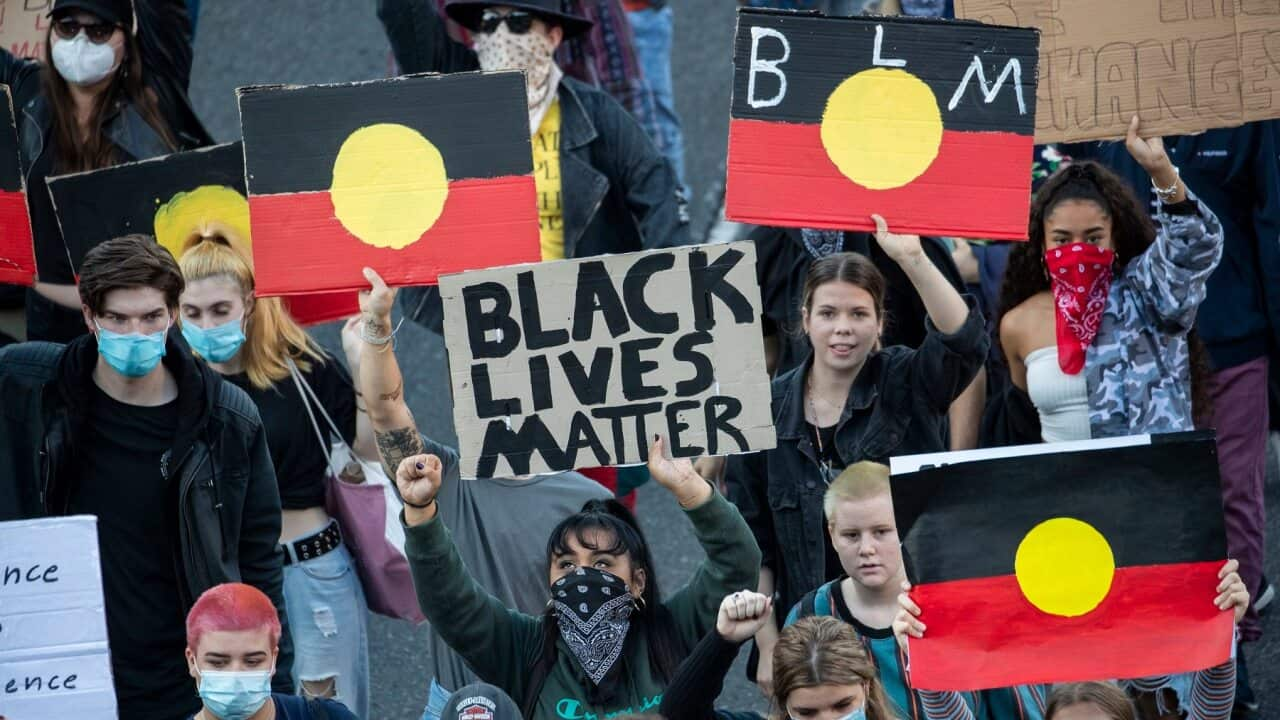Even before a diving accident left him a quadriplegic, Jake Briggs was acutely aware of the issues faced by Indigenous people with a disability.
He saw what his youngest brother, who has autism spectrum disorder, experienced.
"I've grown up with it, since I was a kid - knowing how hard that is through growing up, through the education system and just the way that people look at you and look at your family as a person with disability and Aboriginality and juggling both of those.
"I've always had the front foot forward in speaking up for mob with disability from a young age.
"Me having my accident in 2010 and being involved with it, well that's just amplified tenfold, and even more so being an NDIS service provider."
The royal commission has raised the problem of the double discrimination faced by First Nations people with disability in an issues paper, released on Tuesday, asking people to share their experiences with the inquiry.
Commissioner Andrea Mason said as an Aboriginal woman, she often talked about walking in two worlds.
"Aboriginal and Torres Strait Islander people (with disabilities) have to walk in three worlds," Ms Mason told AAP.
"They've got the issues of having disability, race issues and then they've got the challenge of navigating mainstream Australia.
"They're very much constantly working out how they can experience the full enjoyment of their human rights in Australia. It's a much greater challenge."
Thirty-eight per cent of Aboriginal and Torres Strait Islander people have a disability. For adults, it is 48 per cent.
The issues paper notes First Nations people with disability are at greater risk of experiencing harm compared to the general population.
They are more likely to have experienced threats of physical violence, trauma, psychological distress, poorer health outcomes, being detained because of cognitive disability or foetal alcohol syndrome, low income levels and being less likely to be studying or working.
Ms Mason said the Royal Commission into Violence, Abuse, Neglect and Exploitation of People with Disability needed the community's input to address the issues.
"I think that is going to help steer how many hearings we have, roundtables or different ways where we can really drill down to understand these experiences and what it means for future recommendations and reforms."
'They thought he's another drunk blackfella'
When the accident resulted in the builder being an incomplete quadriplegic, Mr Briggs quickly started advocating on behalf of Aboriginal and Torres Strait Islander people with disability.
He eventually became a full-time advocate, to help others who he saw slipping through the cracks, before setting up his own service provider, called Culture Connex, under the National Disability Insurance Scheme.
Mr Briggs said there have been improvements under the NDIS.
"But there are still cases that fall off the wayside, especially when you look at jails and justice."
One of his clients is a man with an intellectual disability, who was previously under an extended supervision order requiring close supervision in the community before his recent release from jail.
"He'd come out, he'd have a little trip-up and he'd be back in. This extended over an 11-year period," Mr Briggs said.
"Sometimes it's tricky if you've got someone with mental, intellectual, cognitive disability not knowing what's right or wrong," he said.
"With a breach of curfew or it might be substance abuse, they'll trip up and fall back into the system."
Mr Briggs, who also works with youths in the Koori court system, plans to raise the case with the disability royal commission as part of his role on its First Nations advisory group.
Mr Briggs said the double discrimination of racism and having a disability made life so much harder.
"I've wheeled into meetings and you have already these pre-conceived ideas because he's an Aboriginal person or he's a quadriplegic - how's he going to do X, Y and Z, how's he going to operate?
Mr Briggs said he had personal experience with the "double disability" after an emergency trip to hospital because his body could not regulate its temperature.
"I was incoherent. I couldn't speak but I could hear and see what the staff were doing," he said.
"I was treated poorly. Then as I started coming to and telling them what was up, that's when I was treated very differently.
"They thought I was a bit pissed. They thought 'he's another drunk blackfella'. They were treating people before me."



